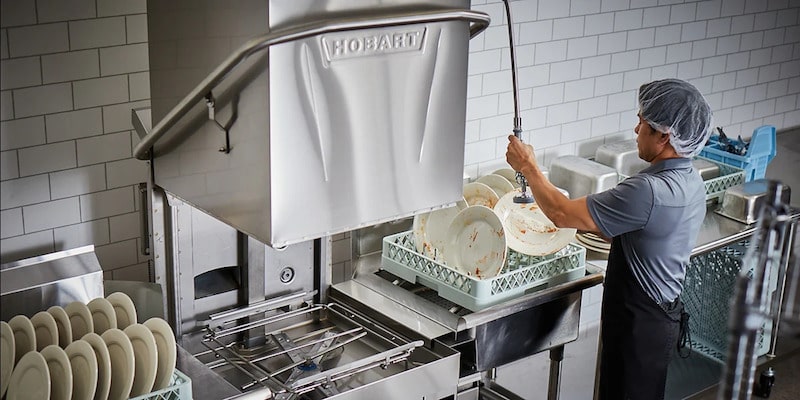
At seventeen years old, I was already something of a veteran in Salt Lake’s restaurant industry (or so I thought) after three dishwasher positions and bussing at Marie Callender’s. The most humiliating time was my single evening working at Hot Rod Hundley’s Restaurant, where after just one hour, I was determined “unqualified” to wash dishes. That hurt.
My longest stint had been as a dishwasher at the Forklift at Snowbird, working under Chef Merlin’s hot temper. But he also had a kind way of taking green young uns under his tutelage. The chef took great pride in every entree exiting his kitchen. Merlin taught me chopping and presentation skills, and how to properly disassemble and clean a slicer and become a master with the Hobart industrial dishwasher.
As a seasoned restaurant laborer (or so I thought), I was eager to get into the kitchen and learn more marketable skills, so I applied at the best of the best: Gastronomy Inc. — The Market Street Broiler.
Hired by Kitchen Manager John under the leadership of Bruce and Lonie, I was brought on to be a cold-line cook. At seventeen, I bought my own chef’s knife. I felt lucky to have the job, even though it paid just $5.50 per hour when other chefs were getting at least $2 more. I was hungry for lessons in the kitchen, and one young chef offered me some great lessons about chopping safety and efficiency, as well as other simple lessons like, “Don’t ever waste a trip. Always find more things to carry if you can.”
I was in charge of the famous Market Street chowder, along with their salads and oysters. On busy nights I would shuck up to twelve dozen oysters. The shucker’s nightmare was ten or twelve at the most. Tables this large almost always wanted a dozen oysters. This wasn’t unusual at Salt Lake’s most famous fish houses — Market Street Grill and the Broiler.
Operating within such a famous organization, I had a sense of how great leadership trickled down to top managers and eventually to the kitchen and serving staff. Owner, Tom Guinea, would plop himself down in an unassuming position behind the bar and my station at the cold line. He wouldn’t announce himself nor put on any airs. He would just witness and make observations. Then some changes might come down the pipe. He always tasted the chowder, ensuring that it wasn’t too thick, too thin, or over or undercooked. The ratio of cream to stock must be just right. It was an ongoing challenge.
The massive 150-gallon kettle also had to be kept at the perfect temperature and stirred at just the right time intervals. Servers would sometimes take it upon themselves to “f***k with the chowder,” I was warned. This was usually a sign that customers were complaining. They would then either add water or cream, in which case I had to learn to tell them, “Hey! Get outta here! I got it!” Otherwise, it was I who would suffer the wrath of John.
I learned to know my chowder, and I learned how to make the very best Crab Louie salads, chef salads, and mixed seafood salad sandwiches. I always kept my knife sharp to ensure my tomato dicing would be fast but safe. Still, it took me months to learn how to prep properly, but I learned it well until I had the respect of the wait staff, who never touched my chowder again.
These were the great lessons a teenager should learn that can never be taught in school. The school of hard knocks. The school of the real world, of earning respect. Starting at the bottom level of a restaurant is a real-world classroom.
It’s a sad fact today that teenage unemployment is at an all-time high. For some reason, parents and the powers that be, believe teenagers should just be studying or playing Nintendo (or smoking pot). Restaurants are proving grounds, and restaurant labor is the slag (full of imperfections) getting pounded into something harder, which can eventually become steel.
How many great restaurant owners came out of the Gastronomy Inc. ranks? Likely dozens. And how many great employees came out of dishwasher positions as teenagers? Likely hundreds, if not thousands, and it prepared them for life as adults.
Subscribe to Utah Stories weekly newsletter and get our stories directly to your inbox


